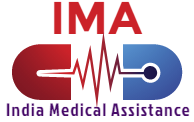How can you keep your kidneys healthy?
Kidney diseases are silent killers, which can widely affect your quality of life. There are many ways to reduce the risk of developing kidney disease.
•Keep fit, be active
This can help to maintain ideal body weight, reduce your blood pressure, and the risk of Chronic Kidney Disease.
• Eat a healthy diet
This can help to maintain ideal body weight, reduce your blood pressure, and prevent diabetes, heart disease, and other conditions associated with Chronic Kidney Disease.
Reduce your salt intake. The suggested sodium intake is 5-6 grams of salt per day. This comprises the salt already in your foods. (around a teaspoon). To decrease your salt intake, try and limit the quantity of processed and restaurant food, and do not add salt to food. It will be simpler to control your salt intake if you prepare the food yourself with fresh ingredients.
• Check and control your blood sugar
Around half of people who have diabetes do not know they have diabetes. Therefore, you need to check your blood sugar level as part of your general body checkup. This is especially important for those who are approaching middle age or older. About half of people who have diabetes incur kidney damage, but this can be restricted/ limited if the diabetes is well controlled. Monitor your kidney function regularly with blood and urine tests.
• Check and control your blood pressure
About half of people who have high blood pressure do not know they have high blood pressure. Therefore, you need to check your blood pressure as part of your general body checkup. This is especially important for those who are approaching middle age or older. High blood pressure can damage your kidneys. This is especially likely when compared with other factors like diabetes, high cholesterol, and Cardio-Vascular Diseases. The risk can be diminished with good control of blood pressure.
The normal adult blood pressure level is 120/80. Hypertension is diagnosed if, when measured on two different days, the systolic blood pressure readings on both days is ≥140 mmHg and/or the diastolic blood pressure readings on both days is ≥90 mmHg (WHO). If your blood pressure is persistently elevated above the normal range (especially if you are a young person), you should consult your doctor to discuss the risks, the need for lifestyle modification and medication treatment.
• Take the appropriate fluid intake
The appropriate level of fluid intake for any individual depends on many factors including exercise, climate, health conditions, pregnancy, and breastfeeding.
Usually, this means 8 cups, approximately 2 liters (quarts) per day for a healthy person in a comfortable climate condition.
This needs to be adjusted when in severe climate conditions. Your fluid intake may require to be changed if you have kidney or heart or liver disease. Consult your doctor on the appropriate fluid intake for your condition.
• Don’t smoke
Smoking reduces the flow of blood to the kidneys. When more limited blood reaches the kidneys, it can decrease their capacity to function normally. Smoking also raises the risk of kidney cancer by around 50 percent.
• Don’t take over-the-counter anti-inflammatory pills regularly
Common drugs such as non-steroidal anti-inflammatory (NSAIDS)/ pain-killer (e.g. drugs like ibuprofen) can injure the kidneys if taken daily.
If you have kidney disease or limited kidney function, taking just a few doses can do harm to your kidneys. If in doubt, verify with your doctor or pharmacist.
Your kidneys strive hard for you, day in and day out. To take great care of them, you’ll want to concentrate on these things that make a big difference.






